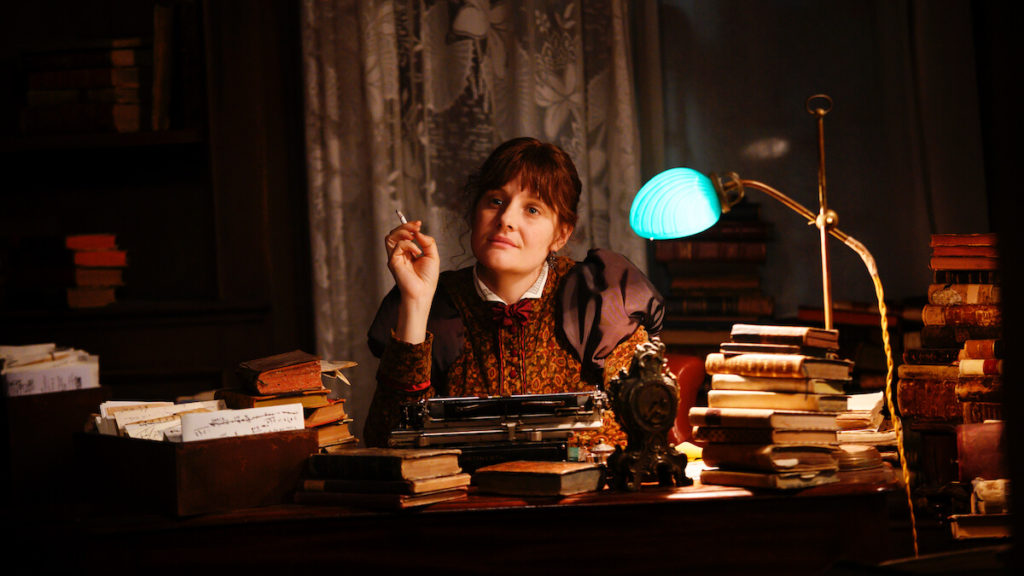
| UK/Italy, 2020 | Biopic/Historical Drama | Independent | Trailer |
Karl Marx is probably the biggest revolutionary figure in history since Jesus of Nazareth, both related to their ideas and the legions of people that drank from them. There is barely anybody in the modern world that doesn’t know them, or at least didn’t hear their names. Furthermore, there is another point in common between both figures: their presence and shadow are so powerful that their immediate relatives are totally covered by them, and we mostly know of them in a secondary fashion, and often only in terms of how they relate to their grander figure next to them.
Miss Marx is a movie that tells the personal story of Eleanor, the youngest daughter of the aforementioned philosopher. Contrary to her older sisters, she rejected the conventions that were expected for women born in wealthy families and, carrying the spirit of her father, she engaged on an ardent career of activism, discussion, writing and defence of society’s lowest groups. Or that is the idea that most people get of her.
This movie sheds a side light on the figure of Eleanor. Instead on focusing only on her achievements and successes, as it might had been expected, it heavily emphasizes the odd position this woman had to defend and most likely hated to stand in but powerfully endured for her whole life. Her private life was a constant struggle with the man she lived with, a good-for-nothing, petty and air-headed hedonist, and whose relationship, even if not officialised, made Eleanor to fight with the rest of her family and acquaintances, which regarded her obviously too good for him.
Why Eleanor Marx insisted in staying with her lover in spite of all problems their relationship carried for her, it’s one of the sad paradoxical human traits that are very interesting to explore. In the end, we even may ask ourselves if Eleanor really chose to live her life like she did, or deep down inside her there was something that hindered her to be fully on control of her life. As I stated before, the shadow of her father Karl is omnipresent, so large that even after his death it hides his daughter from the light of complete freedom until the end. Eleanor’s life is ultimativelty conditioned by her being the daughter of Karl Marx. Even in her apparently “free” life as activist and opposer of the established system, she still is trapped under the shadow of something larger than her, that probably she never could get rid of.
The movie depicts fantastically the psychological drama that the character undergoes, by doing temporal jumps between important parts of her life, and contrasting her internal struggle with her external successes in her career and the unworried foolishness of her everyday. Also, the OST, composed by the Punk band Downtown Boys, adds a touch of disjointness by employing a musical style out of the time depicted that helps to highlight the odd flavour of Eleanor’s life.
Something I really liked, aside of the performance of the main actress, was the fact that Karl Marx appeared only in flashbacks, and never had a direct role in the movie’s plot, so his influence is more perceivable as if he was depicted as alive. Also, they hired a German actor to depict him, so I was pleased to hear him speak English with a German accent, as most probably he did. Many parts of the script were taken from real letters and texts both Eleanor and Karl wrote in their lives, so you can see that Miss Marx was consciously well tailored.
I went out of the screening room honestly safisfied. It’s a movie done with taste, and it also helped me to reflect on the paradoxical human condition, which is something not frequently seen in the very discretised society we live in.